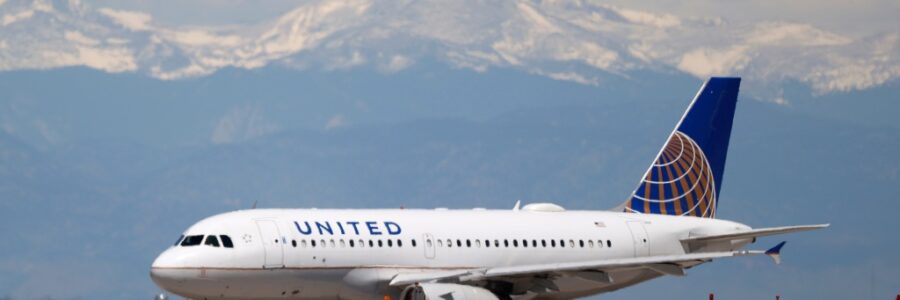
United Airlines lawsuit challenges Colorado paid sick leave law
United Airlines says it hasn’t faced a crackdown from Colorado labor regulators for not fully complying with a 2020 state law mandating paid sick leave, including for workers who come down with COVID-19.
But by filing a new legal challenge of the law late last week, the Chicago-based carrier hopes to avoid the fate of competitor Southwest Airlines. Southwest was fined $1.3 million in March by the Colorado Department of Labor and Employment after investigators cited the company for violating the sick-leave law and other state labor laws.
As Southwest fights that citation and the law in both state and federal courts, United is now adopting similar arguments — citing federal protections for airlines and union agreements that both carriers say should trump Colorado’s paid sick-leave mandate.
The separate challenges mark an alliance of sorts between Denver International Airport’s two most dominant carriers, which argue the sick-leave law could result in flight cancellations or other measures if they’re forced to comply.
United filed its lawsuit, seeking a judgment that it’s not subject to the Healthy Families and Workplaces Act, on Jan. 13 in U.S. District Court in Denver. The airline also alleges the law interferes with Congress’ ability to regulate interstate commerce and other laws.
“United employees receive generous paid sick and other leave benefits pursuant to the negotiated collective bargaining agreements” with its unions, the airline said in a statement to The Denver Post. “It is important to maintain our consistent, nationwide system of collective bargaining for airline employees, and it’s United’s position the state law is preempted by federal law.”
So far, Dallas-based Southwest has failed to overturn the CDLE’s fine, which an administrative law judge upheld on appeal in a written decision issued Dec. 23. The hearing officer largely affirmed the CDLE’s citations, reversing one unrelated to sick leave.
Southwest last spring filed a judicial-review action in state court while challenging the paid sick-leave law in federal court. Both are still pending.
United filed its new lawsuit against Scott Moss, director of the CDLE’s Division of Labor Standards. A CDLE spokesperson declined to comment on active litigation.
But in a motion to dismiss Southwest’s federal lawsuit in September, the Colorado Attorney General’s Office rejected its arguments — similar to those put forth by United now — that the state can’t require airlines to offer their workers here a certain level of benefits because of federal deregulation protections afforded to the airline industry.
Colorado lawmakers passed the paid-sick-leave law early in the pandemic to require that employees be able to take up to 80 hours off for COVID-related illnesses. Starting in 2021, the law required employers generally to allow their workers to accrue up to 48 hours of paid sick leave each year.d
United, echoing Southwest, argues that many of its union agreements do offer similar levels of sick leave or better, but the provisions may not be sufficient to qualify for an exemption from the CDLE. Other union contracts may not include enough sick leave, and it says that some union leaders already are agitating for United to comply.
Fully offering the required paid sick leave to all employees could result in understaffing, the lawsuit says, requiring United to cancel flights, raise fares to hire more employees, or otherwise alter its operations.
When Congress deregulated the airline industry decades ago, the lawsuit says, it protected carriers from actions by state or local governments that interfere with prices, routes or service. United argues that a mandate for more sick leave violates that protection.
But the Colorado attorney general’s filing in the Southwest case argues that labor restrictions are too far removed from pricing or service to run afoul of the law.
And it says Southwest’s argument is “squarely contradicted” by how the courts have interpreted the federal airline deregulation law. The state cited a recent ruling by a federal appeals court that rejected the argument that California couldn’t enforce its rest and meal break laws against Virgin America, which later merged with Alaska Airlines.
The U.S. Supreme Court declined to review that California decision last summer, allowing it to stand.
Get more business news by signing up for our Economy Now newsletter.
Source: Read Full Article